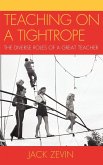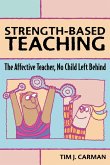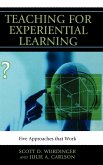Teaching on a Tightrope offers those seeking to play the teacher's role a way of thinking about the major components of teaching. These components are described in terms of pairings that interact and overlap with each other, e.g., teaching as art and science, content and process, theory and practice, cognition and emotion. Each pairing is focused on the overall relationship and communication between actor/actress, the teacher, and audience, the students. The authors propose that a truly great teacher must learn how to balance the many components of teaching to fit both subject and audience. Success depends upon the knowledge, skill, and performance of the one playing teacher in reaching those in the student roles. Practice must be informed by theory, content by process, cognition by emotion; no single factor can stand by itself, but must link to others. Teaching is portrayed as difficult and rewarding, yet often disappointing as well, as a better teacher slowly emerges, and perhaps becomes the great teacher we would all like to be.
Hinweis: Dieser Artikel kann nur an eine deutsche Lieferadresse ausgeliefert werden.
Hinweis: Dieser Artikel kann nur an eine deutsche Lieferadresse ausgeliefert werden.
Teaching is an enormously complicated performance, and Jack Zevin captures the nuances of this performance as he examines the competing pressures and requirements that teachers face when they work with students. For Zevin, engagement is the key: Teachers have to think deeply about how to involve students in instruction, rather than simply follow well-worn but ineffective paths of instruction. This book promotes reflection on how teachers' performance can influence students' engagement, and Zevin encourages teachers to think about the options open to them, the tradeoffs involved, and the messages they send as they seek to balance the forces at work in the classroom. He leads readers to think about the teachers they have seen, both in school and out, and to consider what made them effective and engaging. Beginning teachers-and more experienced ones-will benefit from Zevin's insights into the complicated but rewarding profession of teaching. -- Keith C. Barton, Indiana University








